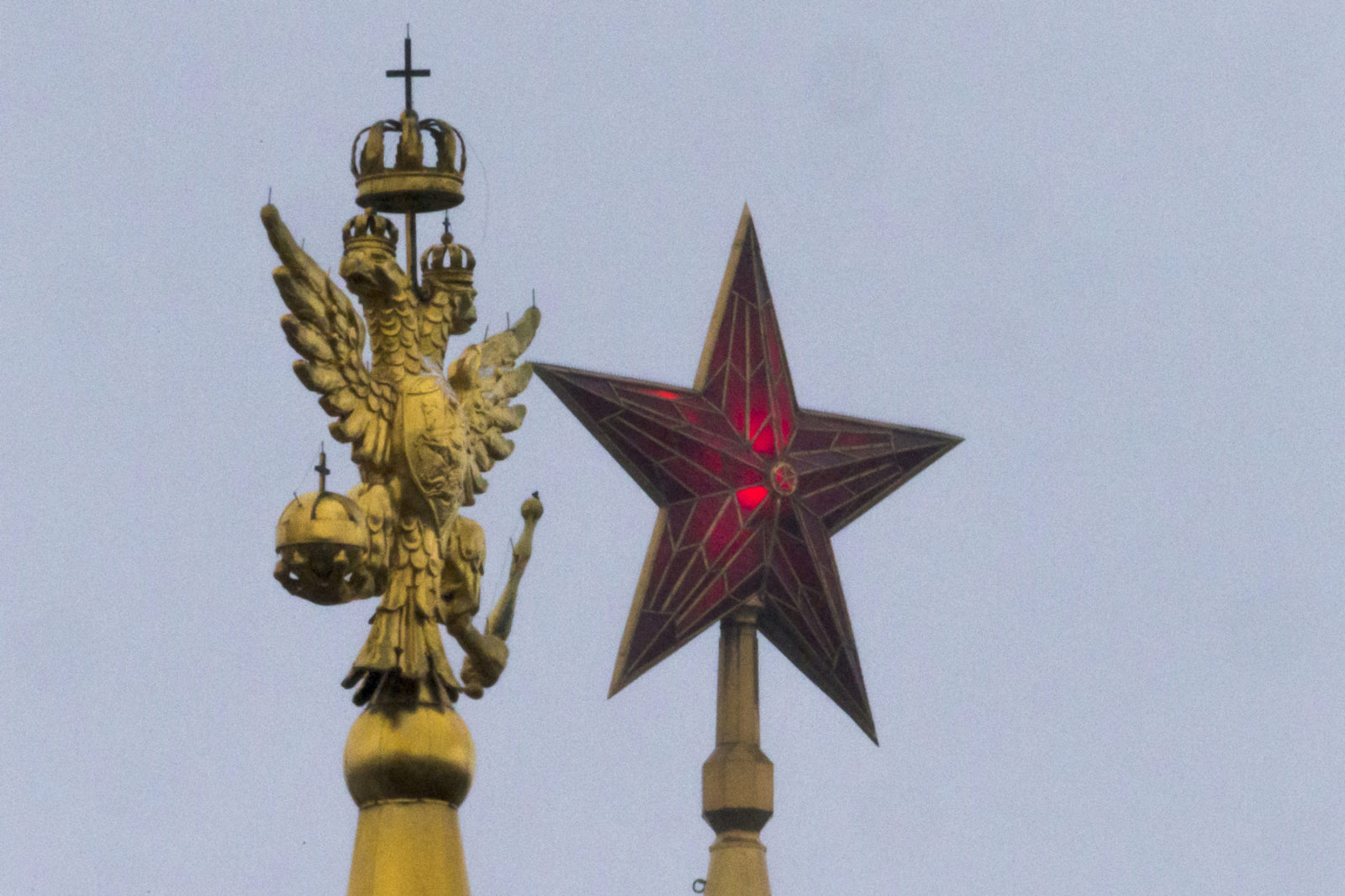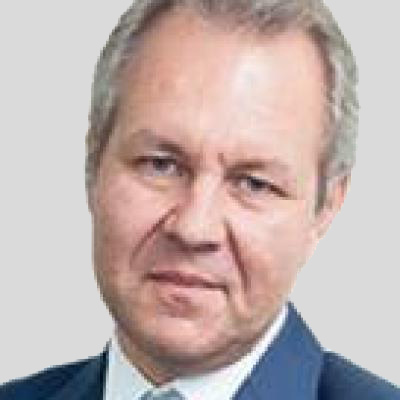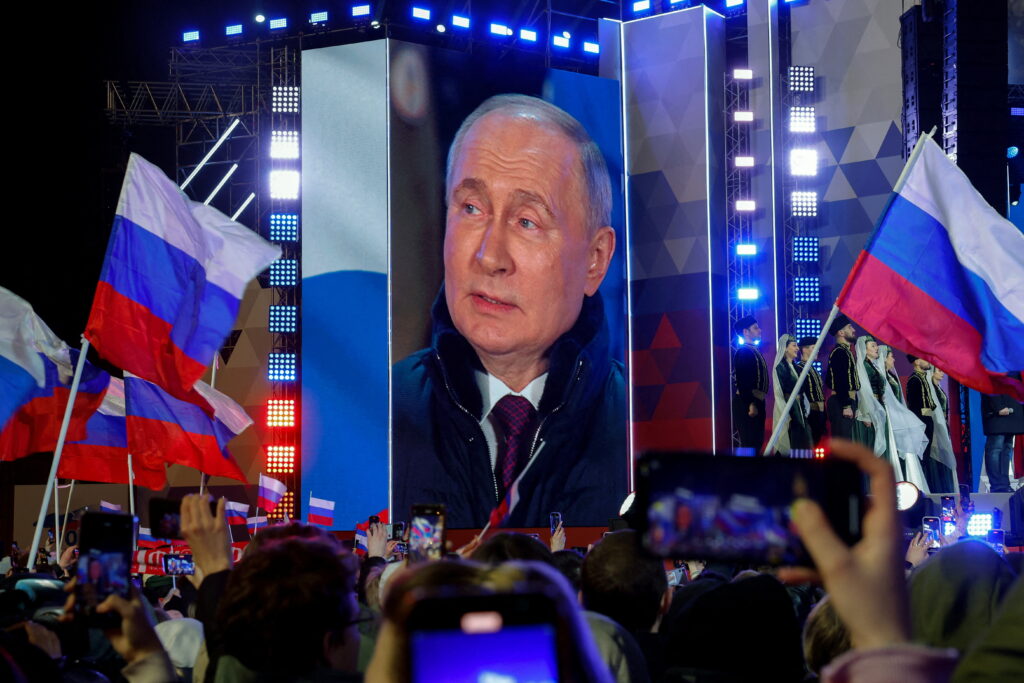In recent months, Russian political discourse has returned to concentrating on the problem of Ukraine. These recent discussions have not been particularly interesting, but one feature of them stuck out so clearly that it has been hard to ignore. In commenting on current events, the overwhelming majority of politicians and experts have took it upon themselves to ask whether neighbouring countries’ courses of development are “in the best interests of Russia.” The answers, of course, are diametrically opposed depending on the commentator’s political standpoint. But at the same time, none of these commentators appeared to have any doubt that they understood what “Russia’s best interests” really were. What may on the surface appear insignificant is actually the perfect reflection of a deeper trend, and one which explains many of the problems Russians still experience today.
Whatever their political beliefs, all Russians are generally convinced that their country has subjectivity in international affairs and has its own, concretely defined interests. Some believe that the country should “return to historic values” to pursue them, while others feel that “Russia cannot survive without modernisation.” A few are convinced that it is in Russia’s interests to unite with the West, or in some cases, China. Practically everybody agrees with the statement that “Russian annexed Crimea,” while only a few speak of annexation and violation of the norms of international law; others talk about the fulfilment of the will of the local population, which expressed its preference in a referendum. One also finds such pearls of wisdom in the works of philosophers, such as Igor Yakovenko’s words that “Russia is a highly developed industrial power which is currently experiencing temporary difficulties.”
Perhaps even the empty Leninist-Stalinist form of Marxist theory was not so wrong after all when it called upon us to unveil the interests of certain groups and forces behind these social processes. Today, we are all losing out from the fact that this approach is has been de-facto consigned to oblivion.
Can Russia as a state be “interested” in something or presented as such? Certainly not. Only the individual, not the community, is capable of reflection. Ideas may become material forces (albeit in a rather crude form) when they take possession of the masses, but are not generated by the masses per se. At the same time even the “masses,” even when they sometimes expand to become “the people,” cannot be equated to the country as a whole. In the history of every nation there are moments when survival is the primary goal; without much exaggeration it is fair to say that in 1945, the Soviet people were “interested” in delivering victory at any cost. However, it would be wrong to identify their interests with the “interests of the Soviet Union,” as an authoritarian power ruled by one of the worst executioners of the 20th century. In other words, in the overwhelming majority of cases, individuals, groups, clans, classes, and so forth have their own interests, and none of them is identical with those of the “country,” which does not exist in the term of monolithic ‘interests’.
When it comes to Ukraine, the interests of several camps within Russia are perfectly clear. The Kremlin elite hopes that the country’s pro-western trajectory will weaken, that the country’s economy will be undermined, and that it can continue plundering the Donbas with its local “business partners.” Russia’s liberals hope that a successful Ukraine, having joined Europe and developed a flourishing economy, can make Russians recognise the advantages of freedom over serfdom. The “interests of Russia,” however, are not at all clear.
It is no great revelation that the success of modern western society was foretold at the moment when “I” began to prevail over “It.” When the British gentry began to realise their own interests before those of the king, who was accustomed to speaking on behalf of the “state.” When this state itself became fully personified, and when decisions influencing that state’s policies were taken by specific people who could be held accountable for them. For example, in the course of recent debate on the deterioration of relations between China and the USA, it has been rare to encounter appeals to “American interests.” Commentators carefully analyse who wins and who loses in likely scenarios. Meanwhile, everybody accepts that the initiator of the most recent disputes was not a monolithic “America,” but the administration of President Donald Trump and its individual functionaries. The current US president has quite distinct ideas about what benefits the country than his predecessor, but these were and remain the presidents’ personal convictions, not “American interests” writ large. In this distinction between a person’s actual interests and the imaginary “interests of the state” lies the basis of a truly modern society, which has never existed in Russia and cannot be found there today.
Russia today is a place where a great deal is being done to make people forget about analysing the interests of concrete actors in favour of nonsense about “the interests of the state.” Indeed, in this case real responsibility is either dispersed or disappears altogether. It seems that while Russia’s rulers may make mistakes in accurately defining them, they are still assumed to be guided by a wholesome pursuit of “the country’s best interests,” rather than their own enrichment, career, or other benefits. In reality, of course, things are in reverse. Only in such a country as this could the concept of “power” exist as Russians understand it; an anthropomorphised force capable of suggesting, deciding, and doing, while remaining impersonal. In Western countries, decisions and actions are completely personalised. Courts in the USA do not render decisions “in the name of the United States;” the texts of their rulings begin with a list of the name of judges who accepted them, as well as references to the minority of judges who expressed a differing opinion.
Where there is no such “power” but there are politicians, the latter will resign if their actions have somehow caused harm to ordinary citizens, senior officials, or the party to which they belong. Where there are no “masses,” but there are citizens, taxes are paid by these citizens on their incomes or are written on the price tags of whatever they buy, rather than being automatically deducted from their wages or imperceptibly “embedded” into the cost of goods and services. In Russia, even marriages are declared “in the name of the Russian Federation.” Aggression is justified by the “interests of Russia,” and the president does not use the word “I” in his speeches, preferring to speak impersonally. Every television programme, apart from its performers, has dedicated “curators” who have more power and less authority than the latter. There are many more examples, but the trend they illustrate is clear: the corporate elite of the Putin era has discovered an ideal method not only to convince the population to identify with the ruling clan, but also to identify the interests of the latter with the country as a whole.
In order for Russia to change for the better and modernise, Russians need to educate themselves in critical thinking, a mindset which has a powerful allergy towards any statements about “Russia’s best interests.” Statements which include these words should be treated with scepticism, and the decisions which those words justify should be very carefully scrutinised to establish their real beneficiaries. “Russia” does not take any decisions concerning domestic or foreign policy. Behind such actions stand human beings; if we call them by name, we can start to understand what motivates them and what consequences they hope for.
The 20th century was the most remarkable in human history in terms of the clash between the interests of the state and the individual. In some societies, the authorities succeeded in convincing ordinary people that the state’s primacy over their private lives was entirely “natural.” For a short time, it seemed as though these societies had achieved staggering successes; catastrophes on an epic scale soon followed. Italy, Germany, the Soviet Union or Russia, China, and Japan all passed through this phase. Some of these countries learnt lessons from that experience; others learnt practically nothing. Whatever the degree to which this or that country managed to improve itself as a result, it is necessary to recognise that the price paid by ordinary people was enormous.
But even in this list of countries, Russia holds a special place. Her people suffered perhaps the greatest sacrifices in the history of mankind in the name of a “state,” which twice in one century was unable to even save itself, having collapsed under the weight of its own ambitions. The categorical imperative of Russians should be the denial of trust in the state, in all its guises. Russia’s wealth should belong to its people; its residents should be accorded all the rights and freedoms they are able to use for their own benefit. The public interest should consist of no more than maximum security to pursue a decent life for the largest possible number of citizens. The main task of every responsible citizen should be to effectively limit the authorities’ excessive claims on his property, rights, and freedoms. The sooner this will be realised by the majority of Russians, the fewer sacrifices will be made in the name of an abstract “state,” behind which stand wholly identifiable usurpers and embezzlers of public funds.
All this does not mean that the idea of the state is flawed and untenable. The state will remain a form of self-organisation for national communities for a long time to come. The problem lies only in the recognition that the state does not have any subjectivity or interests which inherently differ from those of its residents or specific groups of citizens. The problem is the lack of recognition that it is the people who empower their leaders, and not the powers that be who determine the people’s degree of freedom. The problem is the lack of recognition that the state can and must be constructed from below, through democratic elections and the possibility of effective control over the authorities through meaningful local government and federalism, and a flexible taxation system that does not resemble prodradverstka (Soviet food requisitioning — ed.)
All these things are so obvious that they need not be repeated. If current developments are any indication, Russia is entering a new phase of political development, and the country’s elite have taken the path of denying the subjectivity of ordinary citizens in favour of that of the state. It is a dangerous path, and one which inevitably leads to national humiliation, if not the disintegration of the state itself.










